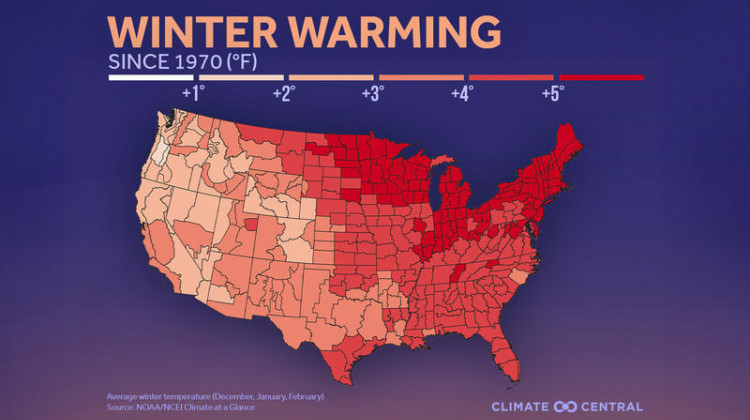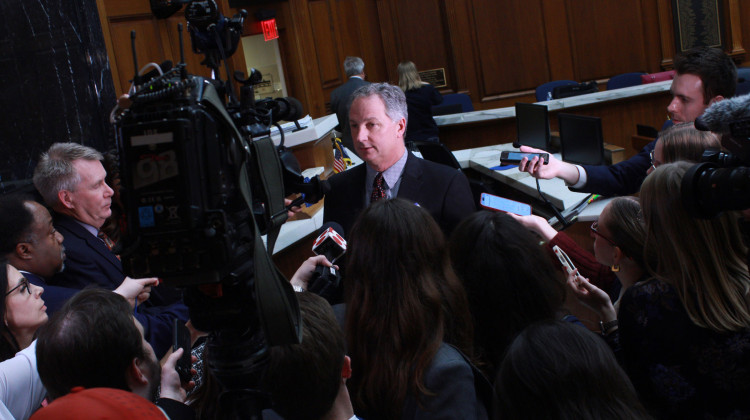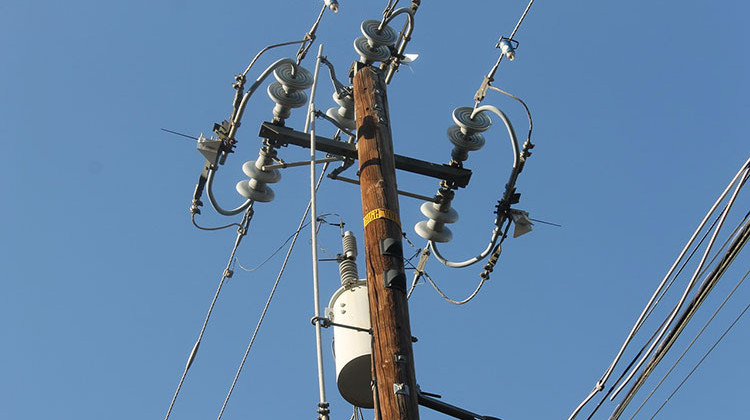Indiana’s winters are warming more than many other states. According to the independent researching and reporting collaboration Climate Central, the state’s average winter temperatures have risen by more than 5 degrees since 1970.
Indiana joins several other Great Lakes states and most of the Northeast in having the most winter warming in the country.
Warmer winters can shorten the chilling time apple and peach trees need to produce fruit for the next season. Erin Sterling and her family own Anderson Orchard in Mooresville. She said while they haven’t noticed that, there’s another reason they’re losing apples.
“We’ve had those cold snaps right after bloom — or when we’re in bloom — and that kills the apple flowers, apple blossoms, apple buds. And that’s happened three years in a row," Sterling said.
Warmer winters can cause fruit trees to bloom early, so they’re more vulnerable to spring frosts.
Join the conversation and sign up for the Indiana Two-Way. Text "Indiana" to 73224. Your comments and questions in response to our weekly text help us find the answers you need on statewide issues.
Jeff Dukes is director of the Purdue Climate Change Research Center. He said by late this century, we’re probably going to get half as much snow as the state has had in the past. That's bad news for the state's ski resorts.
If that precipitation instead comes down as rain, Duke said that could potentially lead to more flooding in the winter — when plants take up less water than other times of the year.
“And we see the water going into the creeks more quickly, and the potential for them to rise faster and have downstream consequences," he said.
Climate Central said warmer winters can also help some ticks and mosquitoes survive in areas they haven't before.
Though the U.S. is expected to have some colder days this winter, overall the winter season is warmer than it was 50 years ago.
Contact reporter Rebecca at rthiele@iu.edu or follow her on Twitter at @beckythiele.
Indiana Environmental reporting is supported by the Environmental Resilience Institute, an Indiana University Grand Challenge project developing Indiana-specific projections and informed responses to problems of environmental change.
 DONATE
DONATE









 Support WFYI. We can't do it without you.
Support WFYI. We can't do it without you.